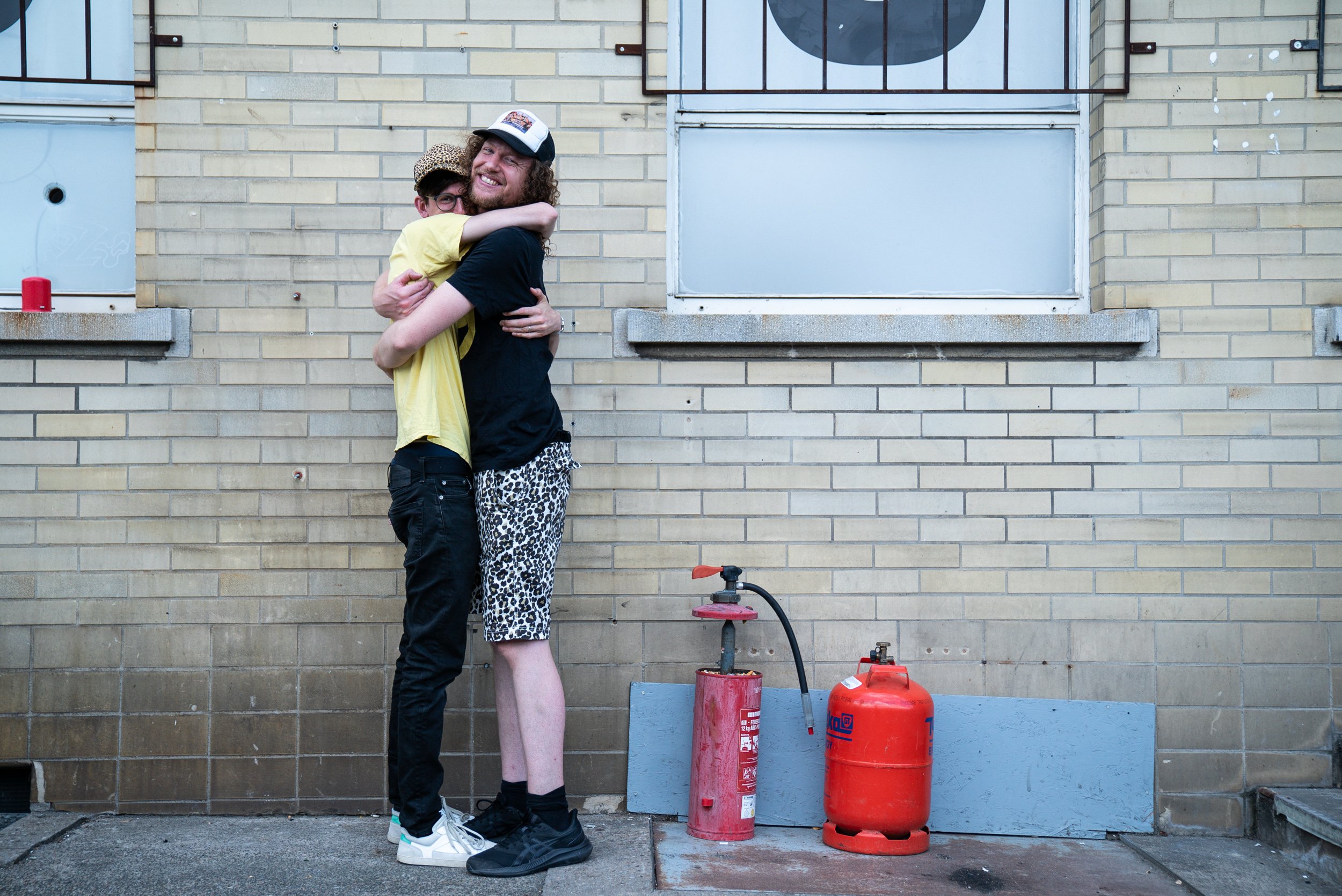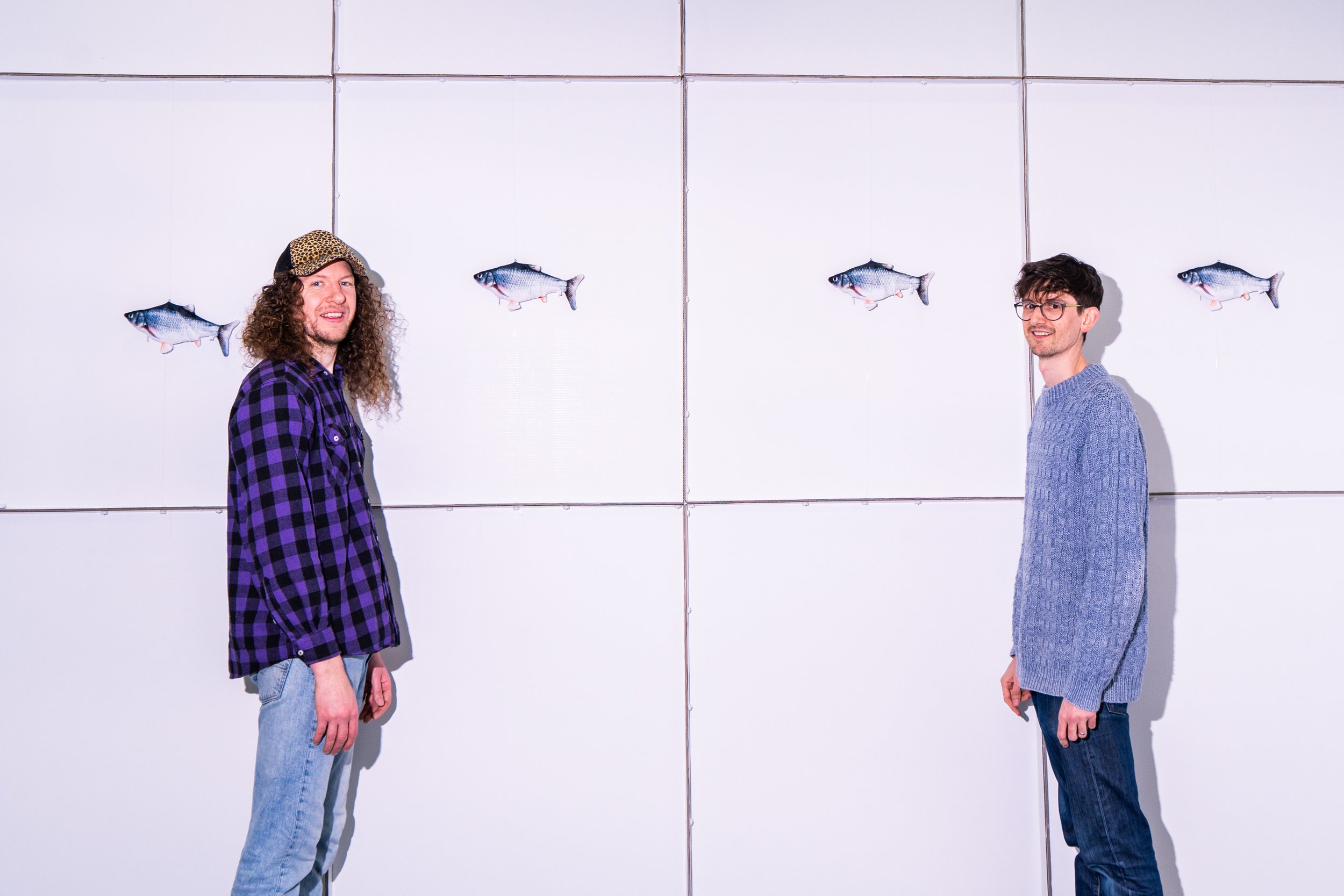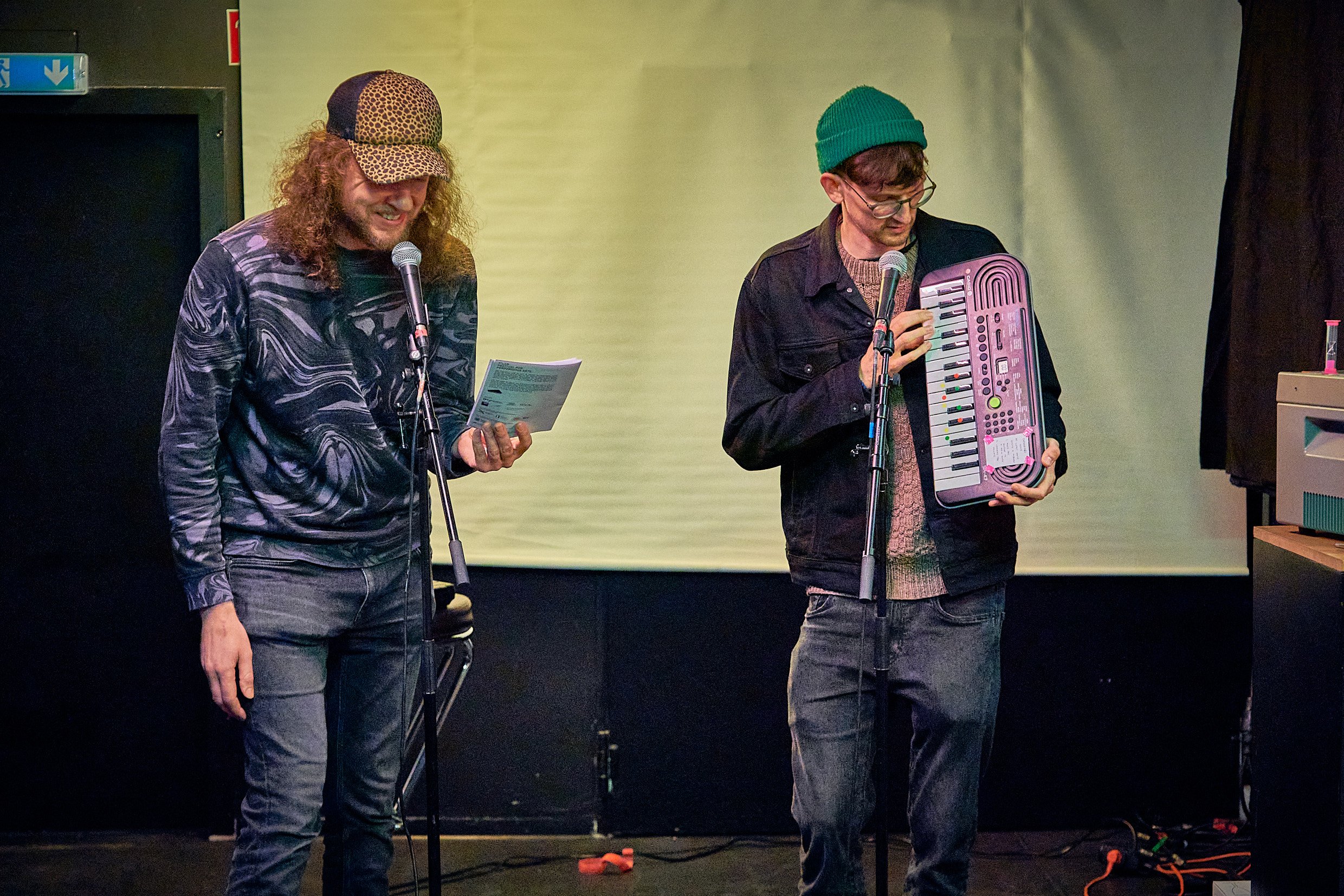
© Lizzy Geble

© Lizzy Geble

© Jörg Baumann
Tedious Work are a British/German interdisciplinary Performance Art Group. They are Paul Norman, Leander Ripchinsky and YOU! Tedious Work often describe themselves as an experimental pop band, partly due to the strong musical element that often underpins their interdisciplinary work, but mostly as they use the structures and formats of ‘being a band’ as a supportive framework for their art. Closely related to this is the participatory nature of the duo's work, which insists that (at least for the duration of the performance) everyone in the space is “part of the band”. This further invites the audience to become actively involved in their practice and helps to build strong and lasting relationships with their audience.
Paul and Leander worked together for the first time in 2018 for Leander’s performance Liebe. For this piece Leander approached 50 different performance artists to each create one solo for him to add to his collection of pieces about love. In their collaboration Paul & Leander already found a common topic, that’s still fascinating for them: To experience failure performatively. In Liebe Leander performed games they had invented for two players knowing that it was impossible to present them successfully. Under the name Tedious Work the group came together for the first time in 2019 to produce the performative installation Trennungssongs of Togetherness for the Unfuck my Future: How to live together in Europe festival at Mousonturm, Frankfurt am Main. The work, which was contextualised by the forthcoming Brexit, explored performative ways of being both together and individual at the same time. We asked questions which continue to be part of our explorations, such as: How can we come together by celebrating our differences? How can we find room for disagreement in order to be productive? How can failing be celebrated? How can starting over feel like a reward?
The groups's work continues to have a sociopolitical and ecological undertone, but this is never directly communicated. Instead, Tedious Work use scores and game-like structures that facilitate participants to interact with each other and reach their own conclusions. Through the careful creation and design of the scores, the group aim to create space for self-reflection within the broader context of the work, so that this reflective experience can also be lived and shared.
